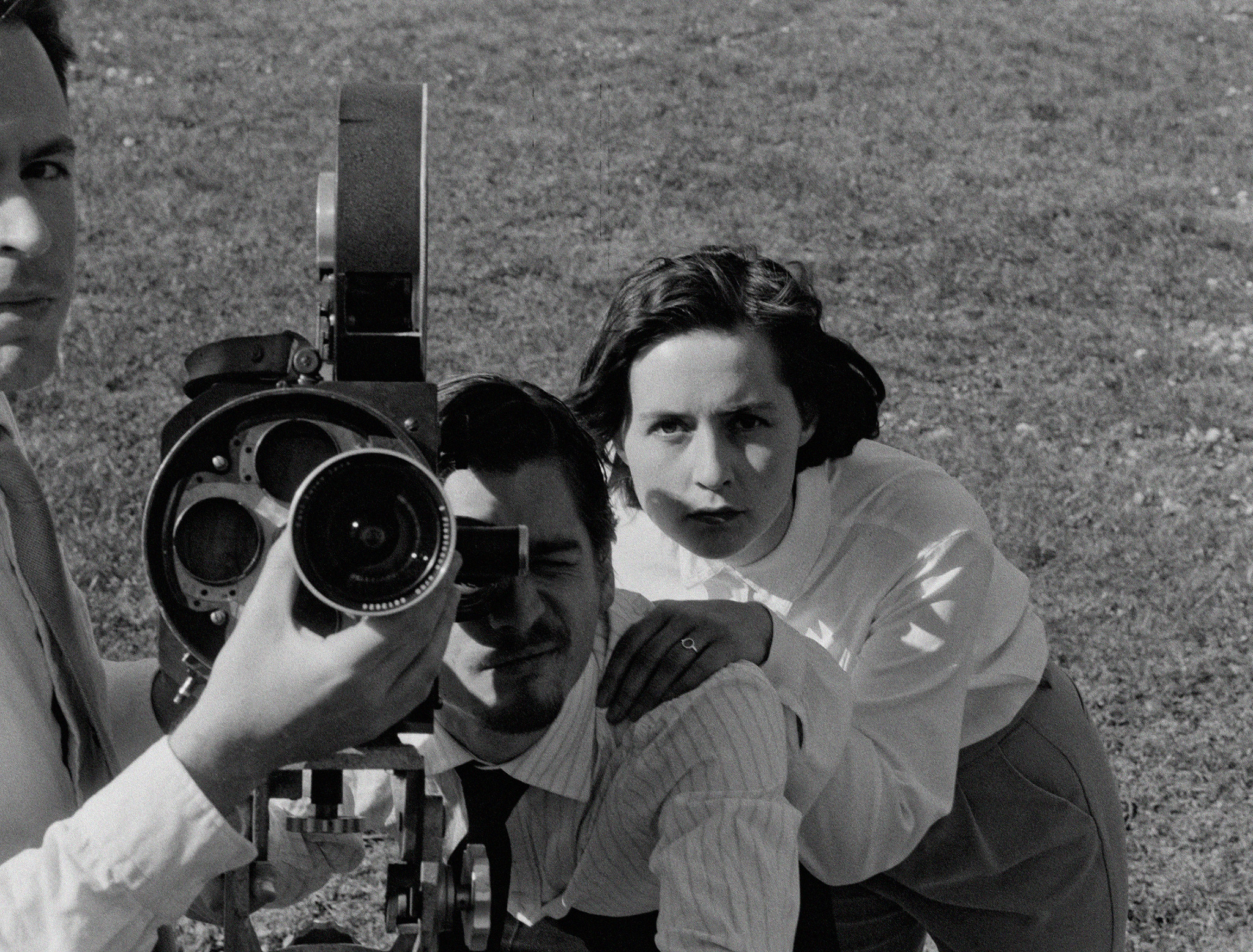The Camera (36) / 攝 像 機 (36)
2016
video installation
1920 x 1080, 1 min 50 sec on loop
ORWO 36mm B&W film transfer to HD video
original soundtrack from Olympia 1. Teil - Fest der Völker

As Korea was controlled by the Japanese Empire at the time, when Sohn won the gold medal in the marathon, he was actually a member of the Japanese delegation. To reject his colonial nationality, Sohn intentionally hid the “Hinomaru (日の丸)” on his shirt—the symbol of the Japanese flag—while the Japanese anthem played during the award ceremony. This movement was also recorded in Riefenstahl’s film.
The filming of the Olympic Games can be seen as a construction of national consciousness, either for Nazi Germany or for those athletes who bore national symbols on their tunics. As a filmed object, Sohn tried to reclaim the dominant narrating power of the camera by hiding the national flag, transforming a passive body into an active image in Riefenstahl’s film. The work The Camera (36) attempts to maintain this capacity for power reversal by remaking a fictional documentary in the Olympiastadion Berlin. Through Sohn’s perspective, the work envisions how Riefenstahl made her famous shot of Sohn during the performance of the Japanese anthem.


Special thanks for the support from Olympiastadion Berlin
work
The Alp
The Bedroom
The Cable
The Camera (16)
The Camera (17)
The Camera (36)
The Camera (65)
The Chat
The Cultural Center
The Dust
The Figure
The Gate
The Jog
The Lighting
The Link
The Looty
The Map
The Mask
The Postcard
The Route
The Sallow Man
The Sculpture
The Smart City
The Toyota
The Vitrine
collective
Bengawan Solo
Café Togo
Songs of SPECX The Currency-Sensing 01 The Currency-Vinyl The Gesture I
The Gesture II The Guestbook The Sallow Sea
exhibition
Ghost In The Sea Too Loud A Dust
On The Faience Of Your Eyes There Are Lights That Never Go Out I'll Be Back Resistance is Futile
Modern Life is Dull
The Alp
The Bedroom
The Cable
The Camera (16)
The Camera (17)
The Camera (36)
The Camera (65)
The Chat
The Cultural Center
The Dust
The Figure
The Gate
The Jog
The Lighting
The Link
The Looty
The Map
The Mask
The Postcard
The Route
The Sallow Man
The Sculpture
The Smart City
The Toyota
The Vitrine
collective
Bengawan Solo
Café Togo
Songs of SPECX The Currency-Sensing 01 The Currency-Vinyl The Gesture I
The Gesture II The Guestbook The Sallow Sea
exhibition
Ghost In The Sea Too Loud A Dust
On The Faience Of Your Eyes There Are Lights That Never Go Out I'll Be Back Resistance is Futile
Modern Life is Dull